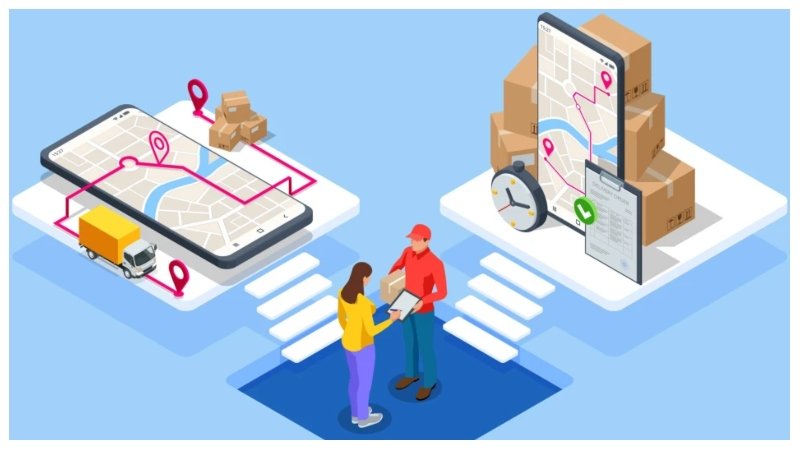Delivery companies face a myriad of challenges, from managing complex logistics to ensuring timely deliveries. The key to overcoming these challenges lies in leveraging the right tools and strategies to enhance efficiency and satisfaction, both for clients and employees. Essential software, innovative fleet tracking, and meticulous route planning play pivotal roles. Moreover, training for personnel and gathering customer feedback significantly contribute to refining the delivery process. Below, we explore the best practices that delivery companies can adopt for smooth operations.
Essential Software Solutions for Delivery Company Logistics
In today’s fast-paced delivery environment, investing in state-of-the-art software solutions is non-negotiable. An efficient delivery operation requires software that can seamlessly integrate all aspects of the business, from order tracking to customer management. The backbone of such integration often resides in comprehensive ERP solutions, which provide a centralized platform to manage the multifaceted elements of delivery services.
With an ERP system, delivery companies can manage inventory, monitor delivery status in real-time, and analyze operational data for strategic decision-making. This level of integration not only streamlines internal processes but also enhances the customer experience by providing more accurate delivery estimates and real-time updates.
Additionally, software that offers customizable options can adapt to the unique needs of a delivery company. Whether it’s adjusting to scale or integrating with other technology, flexibility is a key attribute that allows for the longevity of the software in a rapidly evolving industry. Finding a reliable diesel fuel supplier in Brandon or nearby areas is an important strategy.
Implementing Efficient Route Planning for Timely Deliveries![]()
Route planning is the cornerstone of any delivery company’s day-to-day operations. By prioritizing efficient route planning, companies can substantially reduce delivery times and fuel costs. Advanced route planning software considers multiple variables such as delivery windows, traffic patterns, and vehicle capacity to determine the most efficient paths.
Further, efficient route planning is not a one-time endeavor; it requires continuous updates and adaptability to changing conditions. Companies that invest in dynamic routing software can reroute drivers on the fly in response to traffic accidents, weather conditions, or last-minute delivery requests.
For drivers, clear and effective route plans are critical. They allow drivers to focus on safe driving without the distraction of figuring out their next stop. This emphasis on efficiency not only cuts costs but also enhances the customer experience by meeting expectations for on-time deliveries.
Training and Support Resources for Delivery Personnel
A company is only as strong as its workforce, and in the delivery industry, drivers and support staff are the lifeblood of operations. Ongoing training for delivery personnel ensures that they are up-to-date with the latest best practices, regulatory changes, and company policies. Such investment in employee development translates to better service and enhanced operational efficiency.
Moreover, providing a robust support system for delivery personnel underlines the company’s commitment to their well-being. Delivering materials such as guidelines, safety procedures, and troubleshooting tips can empower employees and foster a sense of confidence as they carry out their duties.
Create an inclusive training environment by utilizing a mix of digital learning tools and hands-on experiences. Today’s workforce values flexibility, and a varied training approach can cater to different learning styles and availability. This can lead to greater engagement and information retention among staff members.
Leveraging Customer Feedback for Delivery Service Improvement
Customer feedback is a vital resource for any customer-centric business, including delivery companies. It provides insights into what is working well and, more importantly, what requires improvement. Establishing a systematic approach to gathering, analyzing, and acting upon customer feedback is essential for the continuous development of delivery services.
Whether it’s through surveys, reviews, or direct correspondence, companies must encourage customers to share their experiences. Constructive criticism is a springboard for change and innovation, leading to processes and services that more accurately reflect customer needs and preferences.
Incorporating customer feedback doesn’t just enhance the service; it also demonstrates to customers that their opinions are valued and considered. This acknowledgment can lead to increased loyalty and word-of-mouth referrals, which are indispensable in the competitive delivery industry.
Overall, the success of delivery companies hinges on the integration of advanced software, efficient logistical systems, and an unwavering commitment to customer service excellence. Implementing strategic practices, investing in the right resources, and fostering an environment of continuous improvement can substantially uplift the standards and reliability of delivery services

